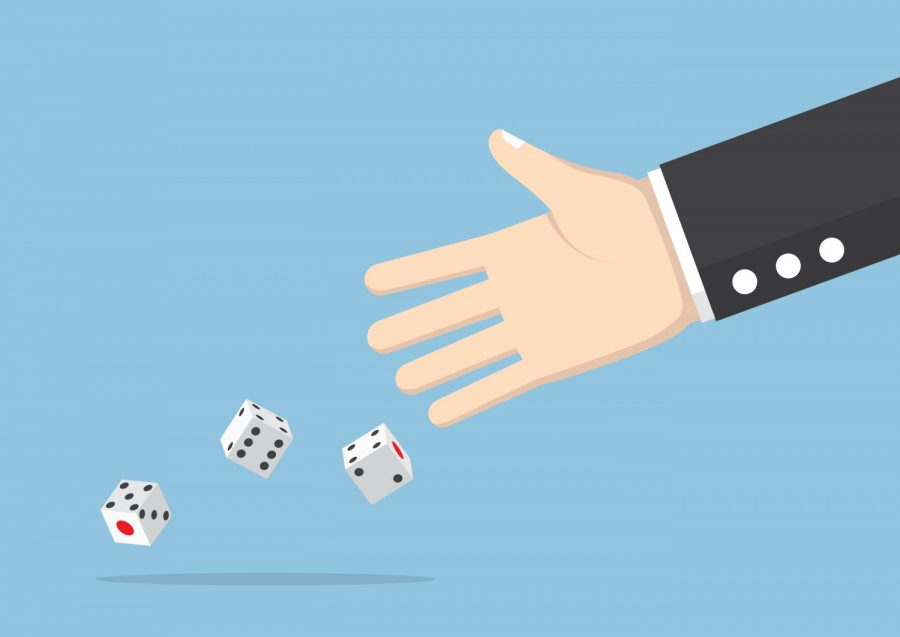When many of us think of gambling today, we may picture giant Vegas casinos, horse races, the “Luck Be a Lady” number from Guys and Dolls. Gambling has been around for millennia, though, and it features in the history of both Eastern and Western cultures.

Early History
The earliest evidence of gambling comes from the Paleolithic period, before written history, and dice date back to 3000 BCE. In China, gaming houses appeared the the first millennium, BCE. Gambling became so popular in ancient Rome that it was banned! This led to the invention of the first gambling chips–Romans would use them to bet with, so that if they were caught, they could claim they were just betting for chips and not money.
Evolution of Games
Some of today’s most popular gambling games have been around for hundreds of years. For instance, Baccarat was developed in the 1400s, and forerunners of Blackjack date at least as far back as 1570–although the term “Blackjack” wasn’t coined until the 1930s. The exact date of poker’s origins is hard to pin down (this is actually the case with all games), but, although it’s predecessors had been around for centuries, poker as we know it today showed up in the 1800s.
The first known casino was established in Venice in 1638, but casinos really took off in Europe in the 19th century. During this same time, informal gambling houses were popping up all over the United States.
Controversies
The US has had a tumultuous relationship with gambling. Seen by many as an immoral practice, it was federally banned in 1910, only to come back alongside the Great Depression. Today, gambling is legal across the country, but its specific regulations are up to the individual states. Despite the varying attitudes surrounding gambling, it has been put to work as a philanthropic tool. Harvard and Yale were funded by lotteries, and states such as Arkansas now scholarship students with state-run lotteries.
Problem gambling, or ludomania, is a notorious addiction. Problem gambling is officially addressed by the American Psychiatric Association and can be diagnosed. There are specific treatment plans to help people with their gambling addictions.
Gambling Today
Many casinos in the U.S. are associated with Native American tribes. The Coquille tribe hosts a casino in Oregon, where all casinos are on reservations. In most states, Native American tribes have tribal sovereignty over their reservation land. Since many states forbid casinos or gambling, or have high taxes on gambling, lots of tribes have chosen to host casinos on their reservations, which provides the tribe with a huge source of income.
Gambling continues to evolve. Las Vegas has become an international cultural icon. Teens turning 18 buy their first lottery tickets (and cigarettes) as a rite of passage. Gambling’s newest incarnation is internet gambling, where you can play classic games online and even from mobile devices. Gambling has been around since before humans could write, and it will likely continue to be a major presence well into the future.



























